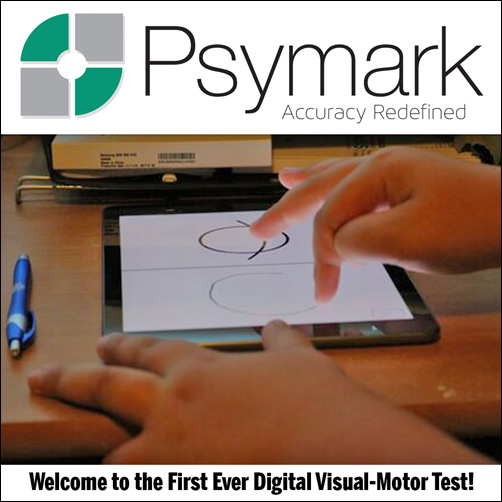Technology is transforming school-based occupational therapy, and the latest episode of the OT Schoolhouse Podcast highlights a game-changing tool that’s making assessments more efficient than ever. In this episode, Karen Silberman, creator of the Psymark Psymark Visual-Motor Progress Monitoring Apps, and occupational therapist Heather Donovan join host Jayson Davies to dive into the latest innovations in Psymark’s digital tools for visual-motor assessments. This tool not only saves time but also equips practitioners and educators with actionable intervention strategies—helping support students more effectively while reducing unnecessary referrals.

What You’ll Learn
In this episode, listeners will gain insights into Psymark’s groundbreaking research and the effectiveness of its digital tools. Highlights include:
- Pencil-Finger-Stylus Study: Findings show that digital input methods produce nearly identical results to traditional pencil-and-paper tasks, reinforcing the validity of digital assessments.
- Concurrent Validity Study: Recent research demonstrates that the Psymark Shapes test has a strong correlation with the Beery-Buktenica Developmental Test of Visual-Motor Integration (VMI), a widely recognized assessment tool.
- Real-World Impact: A case study from a school district revealed a 48% increase in students reaching the Proficient range after a 12-week intervention, highlighting the effectiveness of targeted support using Psymark’s tools.
A Sneak Peek at an Exciting New Digital Visual-Motor Assessment
Listeners will also get an exclusive preview of the upcoming Psymark Visual Motor Screener (VMS), set to launch this spring! This powerful screening tool is designed for both occupational therapists and general education teachers, allowing them to efficiently assess large groups of students and provide tailored intervention strategies for those who need additional support.
The VMS toolkit will include:
- The Visual Motor Screener (VMS)
- A training video
- A comprehensive manual
This new tool will empower professionals to quickly identify visual-motor challenges and implement targeted strategies to help students succeed.
Don’t Miss This Episode!
Hear how Psymark is leading the way in digital visual-motor assessments. visit otschoolhouse.com/episode171 to listen and discover how these advancements are shaping the future of occupational therapy and student success.
At Therapro, we’re committed to providing resources and tools that support therapists, educators, and families. Stay connected for more updates on the latest in assessments and interventions!


 When a group of OTs get together to brainstorm, there’s bound to be some exciting “stuff” that is the outcome. Valorie Todd, MA, OTR/L and her school-based practice colleagues in the New York and New Jersey vicinity had a goal in mind. They wanted to devise a way to monitor quarterly progress in performance skills they identified as “OT goals” or “Areas of Need” on the IEP that was based on normative data. Valorie discussed the rubrics her group developed during her Therapro Saturday Seminar Series workshop on August 22, 2015 entitled:
When a group of OTs get together to brainstorm, there’s bound to be some exciting “stuff” that is the outcome. Valorie Todd, MA, OTR/L and her school-based practice colleagues in the New York and New Jersey vicinity had a goal in mind. They wanted to devise a way to monitor quarterly progress in performance skills they identified as “OT goals” or “Areas of Need” on the IEP that was based on normative data. Valorie discussed the rubrics her group developed during her Therapro Saturday Seminar Series workshop on August 22, 2015 entitled: